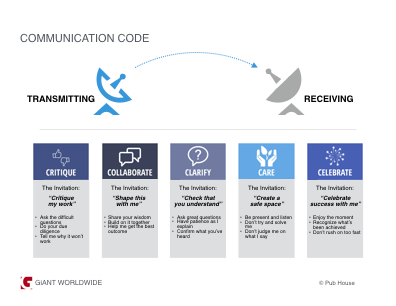I recently finished writing the first draft of my first book. Close to 20 people had asked to be earlier readers, so I decided to get their feedback before sending the draft to the professional editor.
When I emailed them the draft, I explicitly asked for their critique. Let me know how it could be better. For many people, it is not easy to critique ... or at least to share your critique ... of someone else's creative work. But that is exactly what I wanted, so I asked for it.
While I was encouraged by the positive feedback, which told me the draft was a great start, I had a special appreciation for those who reviewed the manuscript with an eye toward improvement and shared their critique. After all, that is what I had ask for.
Most of the time when we start a conversation, we do not specify the type of communication we are seeking. Often that is because we have not stopped long enough to consider the type of response we want.
How many times have you heard or said, I don't need you to try to fix it. I just wish you would listen! A fair response would be, I wish you would have told me!
The Communication Code reminds us there are multiple types of communication. Let it help you identify the type of communication you want. Then express that to others. Asking for what you want can improve the effectiveness of your communication and create less wear-and-tear on relationships.

- Critique: When you want someone to ask questions or provide critical feedback, ask for their critique. This can be helpful when you are weighing options or wanting others to help reveal possible blind spots.
- Collaboration: When you want others to actively contribute to a conversation or process, request their collaboration. This can be helpful when you wish to benefit from the perspective, experiences and skills of others.
- Clarify: If your top priority is to be sure you have been heard correctly, regardless of whether or not they agree with or like what you have said, ask others to clarify what they understood you to say by repeating it back to you -- in their own words.
- Care: Sometimes we simply want to be heard and not judged. This can be helpful when we are hurt, afraid, or confused. If you want someone to listen while you process thoughts and feelings – and not judge you if you are not presently functioning as the best version of yourself – ask if they can show they care by listening as you process.
- Celebration: Other times, we want to savor a positive experience. There may be questions outstanding or future action steps that remain, but for a time, we want to put those on a shelf and celebrate. When this is what you are seeking, invite others to celebrate with you.
Mindset: I will ... determine the type of communication I want -- and ask for it.
